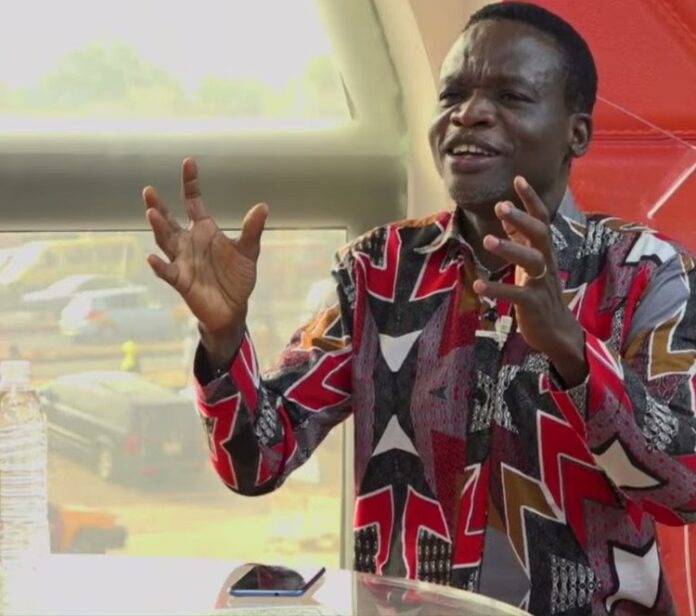Article by Kwabena Adu Koranteng
A severe dollar shortage is rocking Ghana’s banking sector, sending shockwaves through the trading and business communities as importers struggle to access foreign exchange for legitimate transactions. Traders say they are being turned away by both private and state-owned banks and are instead being pushed into the arms of black market operators, where rates are volatile and exploitative.
Currently, the dollar rate at the black market is USD$1=GHC 12.2, one United States dollar equaling Twelve cedis 20 pesewas. Meanwhile, the bank of Ghana, the regulator of the universal bank is issuing a rate of ghc10.3552per US$1 Dollar, interestingly there is no dollar to buy at the various banks.
The situation, according to multiple business sources, has reached alarming levels. Importers requiring even modest sums, such as US$10,000, have reported being denied access to dollars by institutions such as the Agricultural Development Bank (ADB) and Consolidated Bank Ghana (CBG). Traders say that bank officials, in some cases, informally advise them to resort to black market operators — the so-called abolish — where rates are far higher than official interbank rates.
Black Market Boom and Alleged Collusion
There is growing suspicion within the business community that some state officials are colluding with black market dealers to profit from the artificial scarcity. According to multiple testimonies, dollars meant for public allocation are allegedly being siphoned off and sold informally, with the proceeds shared among complicit actors.
This claim, while yet to be formally investigated, mirrors previous concerns about forex diversion raised during earlier currency shortages.
A Recurring Crisis: A Look at the Past
Ghana’s foreign exchange woes are not new. The country has experienced cyclical forex shortages over the past two decades, often tied to fiscal mismanagement, trade imbalances, and external shocks.
In 2014, Ghana went to the IMF partly due to a balance of payments crisis that saw a collapse in foreign exchange inflows and mounting public debt.
During the COVID-19 pandemic (2020–2021), the country faced sharp declines in tourism and remittances — two major sources of foreign currency — prompting the Bank of Ghana to impose FX restrictions on banks and prioritize essential imports.
In 2022, the cedi was named the worst-performing currency in the world by Bloomberg, losing over 54% of its value against the U.S. dollar amid debt restructuring talks and dwindling reserves. That same year, black market premiums rose sharply, and similar allegations of FX hoarding surfaced.
As of July 2023, Ghana’s gross international reserves stood at $5.3 billion, covering just 2.5 months of imports, according to the Bank of Ghana. Although reserve levels improved slightly in early 2024 following the IMF bailout, the sustainability of the recovery remains fragile.
Systemic Issues behind the Crisis
Experts believe the current crisis may be driven by a combination of factors:
Depleted foreign reserves at the Bank of Ghana due to rising import bills and external debt servicing;
Uneven forex allocation that prioritizes state contracts over private sector needs;
Capital flight, worsened by investor fears over political uncertainty and inflation;
Reduced remittances flowing through formal channels, as mobile money and crypto transfers grow;
Corruption and lack of transparency in forex management, leading to a parallel dollar economy.
Dr. Kofi Asamoah, an economist at the University of Ghana, remarked, “Ghana has had chronic current account deficits for years. We import far more than we export, and when foreign aid or remittances dry up, the cracks begin to show. But when state actors benefit from that dysfunction, it becomes a much deeper governance issue.”
National Implications and Calls for Accountability
The consequences of the forex shortage are cascading across the economy:
The Ghanaian cedi continues to depreciate, leading to higher import costs and inflation;
Small and medium enterprises are being squeezed out of global supply chains;
Public trust in the banking system is deteriorating.
This crisis has re-ignited public debate on government accountability, transparency in forex allocation, and the need for structural reforms in Ghana’s economic management. Civil society organizations are calling for an independent probe into the operations of the foreign exchange market and the role of public institutions.
“Where Are the Dollars?”
As traders, consumers, and business leaders continue to demand answers, the question echoes loudly across Ghana’s markets and boardrooms:
Where are the dollars?
Who is hoarding them, and why is the black market thriving while banks are dry?
So far, the Bank of Ghana and the Ministry of Finance have offered little public explanation, further fueling suspicion and speculation. Without urgent transparency and intervention, Ghana may find itself repeating the same historical patterns that have kept the cedi weak, the economy unstable, and public confidence fragile
As it stands now, traders are preparing to import Christmas goods, the unavailability of dollars on the could fuel inflation thus eroding the gains made in bringing inflation down to 13.7 percent in June 2025



